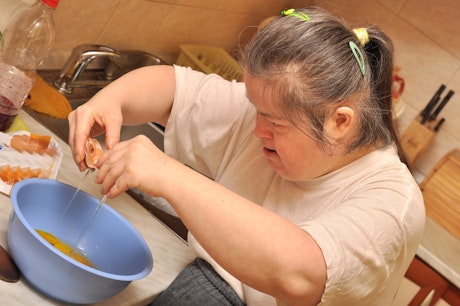
Employment Support
Get help with careers advice and planning an employment pathway.

Job hunting can be an overwhelming and time-consuming experience. People with disability can face even more barriers during the recruitment process.
The Disability Support Guide team has created the following articles with tips and advice on finding work, putting together your resume and cover letter, sharing disability information with potential employers, interview preparation and workplace adjustments.
Professionals can help you with employment goals and support so you can reach your goals and gain employment.

Get help with careers advice and planning an employment pathway.

Students with disability can access additional support at primary and high school through both internal and external services.

Support services to help you manage the planning and funding allocated under NDIS.

Services to teach you skills to help make choices in your everyday life and to participate in the day to day activities of your home.
Here you’ll find a selection of information articles related to employment, volunteering and supports that have been published on Disability Support Guide to help you navigate through employment services.

Knowing when, or if, to share information about your disability with potential or current employers is a tricky topic.

If you told Natasha Ricks a few years ago that she’d be working in customer service and talking to people on the phone every day, she wouldn’t have believed you.

Knowing what job or volunteer role would suit you might seem tricky, but the Disability Support Guide is here to help!

Developing financial independence, improving your health and finding a sense of purpose are just some benefits of having a paid or unpaid job.
Job hunting can seem difficult, time-consuming and overwhelming and you may be unsure where to start, so we’ve put together some tips to help you with the process of finding and starting a new job.
Preparing documents such as a resumé and cover letter ahead of time means you can have them ready to go when you need them, making the job application process quicker and less stressful.
The job interview is probably the most important step you will take in your job seeking journey. It is your chance to make a great first impression and show a potential employer that you are the best person for the job.
If you need modifications or adjustments to your workplace to accommodate your disability so you can work at your best, you can ask your employer to make changes around your office and general work area.
Developing financial independence, improving your health and finding a sense of purpose are just some benefits of having a paid or unpaid job.
Nick Palmer is living life on his terms. On his living room wall is a photo of him sitting on a Harley with a black helmet and boots. It’s surrounded by photos of his family, friends and adventures from Perth to Tamworth.
If you told Natasha Ricks a few years ago that she’d be working in customer service and talking to people on the phone every day, she wouldn’t have believed you.